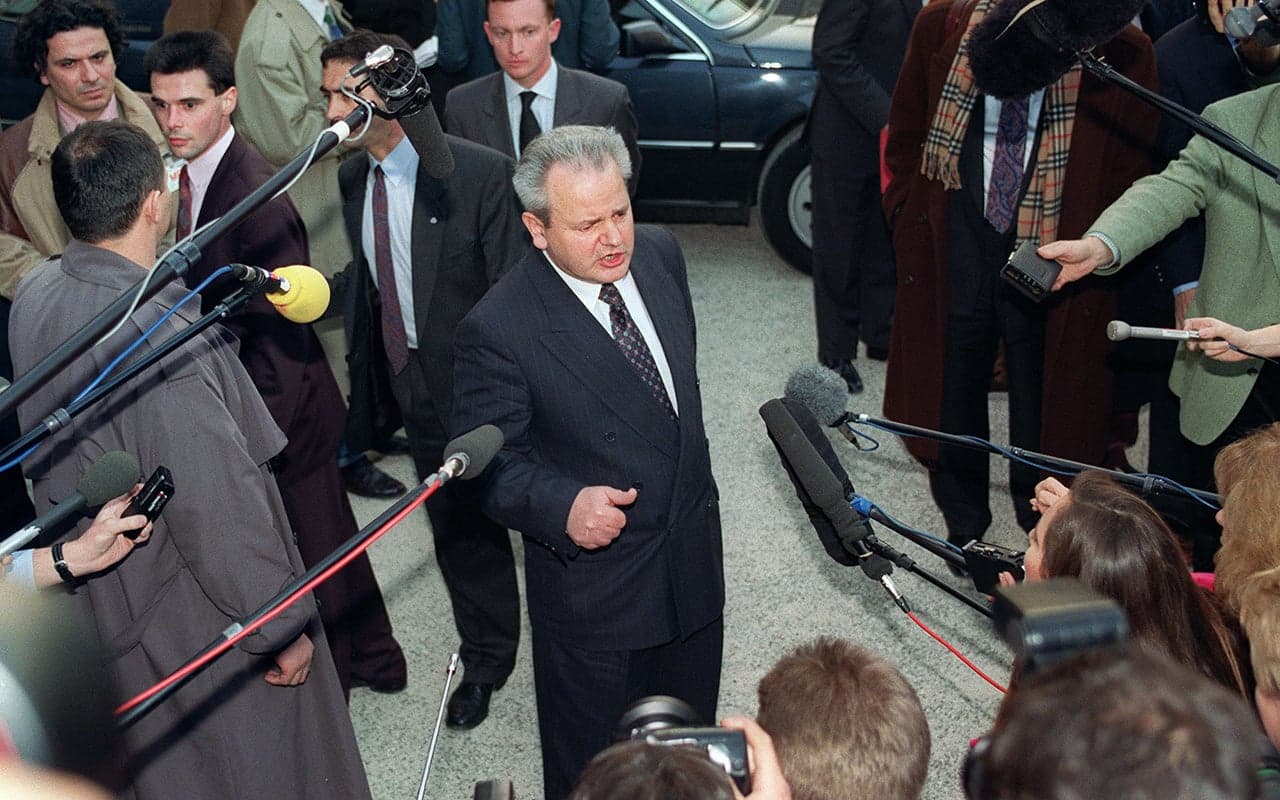On February 12, 2002, former Yugoslav president Slobodan Milosevic goes on trial at The Hague, Netherlands, on charges of genocide and war crimes in Bosnia, Croatia and Kosovo. Milosevic served as his own attorney for much of the prolonged trial, which ended without a verdict when the so-called “Butcher of the Balkans” was found dead at age 64 from an apparent heart attack in his prison cell on March 11, 2006.
Yugoslavia, consisting of Croatia, Montenegro, Slovenia, Serbia, Bosnia-Herzegovina and Macedonia, became a federal republic, headed by Communist leader Marshal Tito, on January 31, 1946. Tito died in May 1980 and Yugoslavia, along with communism, crumbled over the next decade.
Milosevic, born August 20, 1941, joined the Communist Party at age 18; he became president of Serbia in 1989. On June 25, 1991, Croatia and Slovenia declared their independence from Yugoslavia and Milosevic sent tanks to the Slovenian border, sparking a brief war that ended in Slovenia’s secession. In Croatia, fighting broke out between Croats and ethnic Serbs and Serbia sent weapons and medical supplies to the Serbian rebels in Croatia. Croatian forces clashed with the Serb-led Yugoslav army troops and their Serb supporters. An estimated 10,000 people were killed and hundreds of Croatian towns were destroyed before a U.N. cease-fire was established in January 1992. In March, Bosnia-Herzegovina declared its independence, and Milosevic funded the subsequent Bosnian Serb rebellion, starting a war that killed an estimated 200,000 people, before a U.S.-brokered peace agreement was reached at Dayton, Ohio, in 1995.
In Kosovo, a formerly autonomous province of Serbia, liberation forces clashed with Serbs and the Yugoslav army was sent in. Amidst reports that Milosevic had launched an ethnic cleansing campaign against Kosovo’s ethnic Albanians, NATO forces launched air strikes against Yugoslavia in 1999.
Ineligible to run for a third term as Serbian president, Milosevic had made himself president of Yugoslavia in 1997. After losing the presidential election in September 2000, he refused to accept defeat until mass protests forced him to resign the following month. He was charged with corruption and abuse of power and finally surrendered to Serbian authorities on April 1, 2001, after a 26-hour standoff. That June, he was extradited to the Netherlands and indicted by a United Nations war crimes tribunal. Milosevic died in his cell of a heart attack before his trial could be completed.
In February 2003, Serbia and Montenegro became a commonwealth and officially dropped the name Yugoslavia. In June 2006, the two countries declared their independence from each other.
